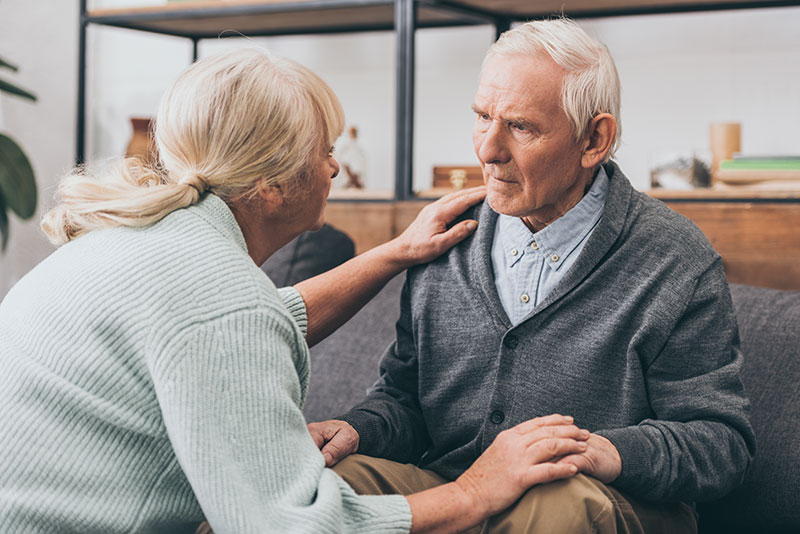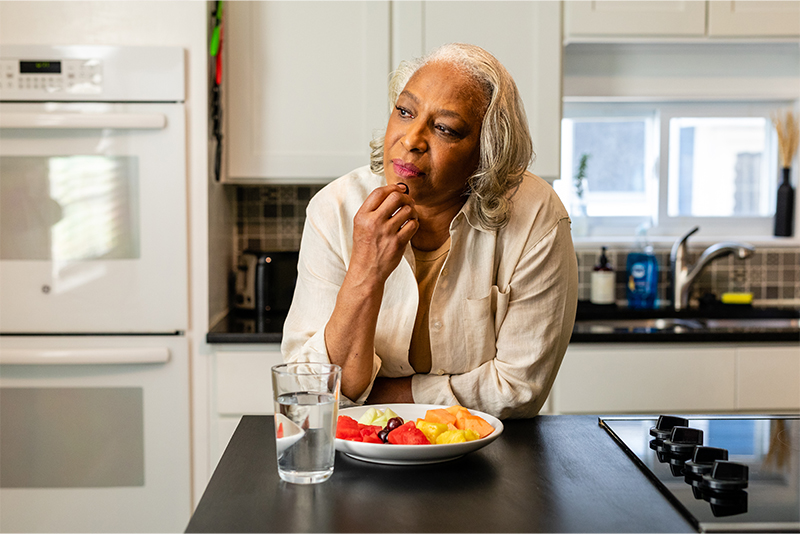The Health Concerns That Could Be Causing Chronic Negativity in an Older Loved One


If you’re noticing chronic negativity in an older loved one, there may be a medical condition to blame.
We all have good days and bad days, and we are all entitled to a bit of crankiness or negative thinking every now and then. If you are noticing a pattern of chronic negativity in an older loved one, however, it is worthwhile to explore whether a health problem might be the culprit.
Listed below are several reasons for persistent negativity, and how you can help.
- Pain. A recent study revealed that participants who were enduring chronic pain reported a rise in negative moods, including fatigue, anger, tension, depression, anxiety, and more. It is essential to discuss any of these mood changes with the physician, as these kinds of mood changes actually impact the effectiveness of pain management treatments.
- Urinary tract infections. A UTI’s classic signs and symptoms of burning, pain, and urgency to urinate may include additional side effects for seniors, including angry outbursts, irritability, and confusion, along with other changes in mood or behavior. Speak with the physician to rule out a urinary tract infection if you notice these kinds of irregular behaviors.
- Medication side effects. A number of medications – including those meant to help with mood, such as antidepressants – may cause troublesome mood swings. Medications for blood pressure, seizures, and inflammation may cause personality and behavioral alterations in some people. Again, consult with the doctor and go through all of the older adult’s prescriptions to find out if the problem is due to one medication, or perhaps the interaction of multiple medications together.
- Dementia. Mood and personality changes are common in dementia. It is essential to recognize that these changes are a symptom of the physiological changes in the brain, and are not a representation of the person’s own choices and decisions. There are medicinal and natural treatment options that can help the person feel calmer and less agitated that you may want to explore.
Chronic negativity in an older loved one can arise from loneliness or boredom, too. Whatever the cause, persistent negativity can wear on a caregiver’s own sense of peace and wellbeing. It is important to be able to step away from your caregiving role on a regular basis, and to make this time away a top priority. The person you love will also benefit from the chance to spend time with friends, family members, or a professional caregiver. These breaks are a healthy part of your caregiver/care receiver relationship – for both of you.
Hired Hands Homecare’s caregivers are wonderful companions to help brighten the mood of the older adults we serve. All of our caregiving staff are fully trained, background checked, and accomplished in a wide range of in-home care services for seniors. Call us at (866) 940-4343 to learn more about how we can help someone you love in Novato, San Rafael, Petaluma, or throughout the Bay Area, while allowing you the time you need to rest and rejuvenate.








Leave a Reply